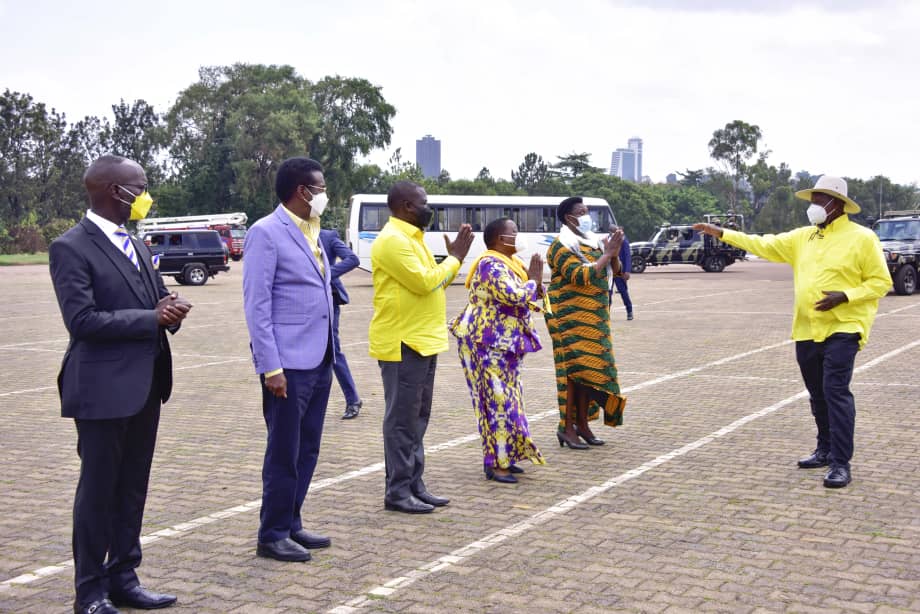Amidst contestations by the opposition over voter bribery, intimidation, and ballot stuffing among other electoral malpractices, President Yoweri Kaguta Museveni, who is also the national chairman of the ruling National Resistance Movement-NRM has praised leaders for enabling his party to win all the recent five by-elections.
Speaking at Kololo Ceremonial Grounds while meeting the NRM parliamentary caucus, Museveni said he was very happy that the new leaders are working together to ensure the success of the NRM party. NRM won by-elections in Omoro County, Gogonyo County, Bukimbiri County, Busongora South, Soroti City East, and the Kayunga LC5 seat.
“This shows you one thing, devotion. This new team of leaders have got a lot of enthusiasm that is spilling over in whatever that is being done. I congratulate the NRM and those leaders in particular,” Museveni said.
The meeting was called to discuss the government’s plan to merge certain agencies and departments in order to save taxpayers money.
In 2018, the Ministry of Public Service released plans to re-align government ministries, departments, and agencies to address challenges of duplication of work, overlaps of mandates, conflicts, and wasteful expenditures, among others. In February 2021 cabinet approved a roadmap for the rationalization.
According to the report by the Ministry of Public Service which was delivered to the caucus by the state minister for Public Service, Grace Mary Mugasa, out of the 157 government agencies which were reviewed, the government took a decision to retain 88 and merge, mainstream and transfer the functions of 69 agencies.
Mugasa told the caucus that the first phase of the rationalization exercise has been concluded with 53 out of the 69 government agencies harmonized and Cabinet has accordingly taken appropriate decisions for implementation.
The remaining 16 agencies will be rationalized in the 2022/23 financial year.
“The total cost savings arising from wage and non-wage expenditure for the rationalization of 53 government agencies and functions per annum will be UGX 649billion,” the minister said, adding that the money to be saved includes savings from expenses on wage, facilitation of governing boards and councils, contribution to NSSF, non-wage expenses, development expenditure, gratuity, and rent.
For his part, Museveni said apart from research institutions, the ministry departments, farmers’ institutions; among others, the government is seeking to retain only money-making parastatals with boards to monitor and guide their operations.
“For instance, we have the National Enterprise Corporation (NEC). It has many businesses including road making. So, it is justified for us to have a board and management because it is a money-making body,” Museveni stressed.
He said that many government agencies doing almost the same work have boards that don’t do much apart from spending the money allocated to them from their mother ministries.
“If the government wants to have parastatals, have money making parastatals, so that when you say you have got a board, it is a money-making board, not money eating board. Have no board where there is no money-making,” he stressed.
According to the Ministry of Public service, a situational analysis established that some agencies were created without clear justification, others had their mandates overtaken by events, while others are pseudo-government projects which operate in a similar manner as government agencies.

